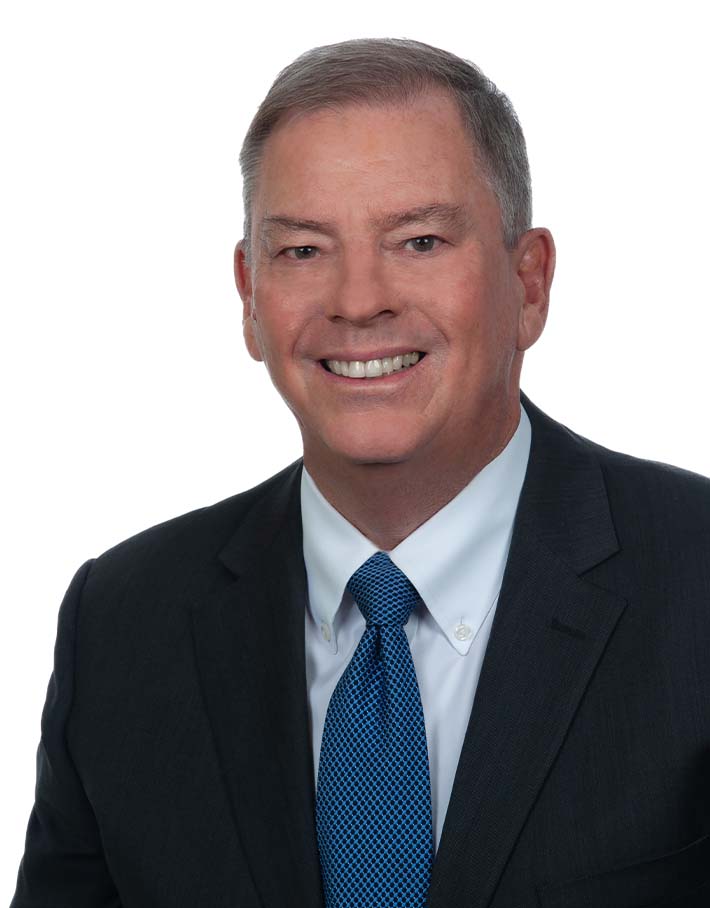
Oyster Consulting General Counsel Patrick M. Dennis and Independent Consultant Andy Favret discuss what makes an effective Expert Witness, as well as the typical industry cases they have participated in as an expert witness.
Transcript
Libby Hall: 0:06
Hi everybody. I’m Libby Hall, your host for today’s podcast. Selecting the right expert witness can affect the duration and outcome of your case. Today, I’m joined by Oyster Consulting’s General Counsel Patrick Dennis and Consultant Andy Favret, who will be discussing the typical industry cases they’ve been a part of and how to be an effective expert witness. Patrick is one of Oyster Consulting’s founders and he frequently acts as an expert witness on a variety of financial services industry topics. Patrick has been in the securities industry for 30 years. He previously worked for the SEC’s Division of Enforcement, and was also General Counsel for Wachovia Securities and Banc One Securities. Andy also has over 30 years of experience in the industry. Prior to working at Oyster, Andy served as Regional Chief Counsel in the FINRA South Region, and Andy has provided expert witness services in FINRA and JAMS arbitrations and civil and criminal court proceedings. With that, Patrick, I’ll hand it over to you.
Patrick Dennis: 1:08
Thanks. Andy, I know you and I testified about a number of different things, somewhat different. Tell me a little bit about some of the areas that you’ve testified about.
Andy Favret: 1:18
I’ve primarily been hired as an expert in FINRA rules and regulations and, to some extent, on SEC rules and even some state rules. Typically the most common things I’ve been asked to opine on have been interpretations of federal rules on suitability and supervision. Those are sort of the bread and butter topics that I’ve seen in securities litigation and arbitration. But I’ve been surprised at how many other somewhat more obscure rules are called into play and those have been included FINRA rules involving membership agreements, obligations of firms to disclose accurately on forms U4 and U5, debt security markups – anything typically that would enable a fact finder to gain information that might not otherwise be available to them.
Patrick Dennis: 2:18
Before we move on, I know you’ve done a lot of work on the variable annuity stuff, and that was one of the areas of expertise you had when you were at FINRA. Have you testified about variable annuity issues? I know we’ve talked to a number of firms about that, but I don’t know whether you’ve testified about that yet.
Andy Favret: 2:33
I have had an opportunity to testify in one case about that. I’ve actually been retained in two others. One, which is still pending, to talk about the evolution of the variable annuity suitability rule, and because that’s a more complex type of instrument, it has been the type of area that both lawyers and arbitration panels do need expert testimony. And so you’re right, that has been one that I’ve found that I’ve been able to add some benefit to.
Patrick Dennis: 3:04
I know I’ve testified about a number of the similar things that you have – suitability and supervision, and things like that. But I’ve also ended up testifying a lot about investment advisory issues: both requirements, the obligations, due diligence required of an investment advisor, and recommending hedge fund investments, and some things like that. I’ve also done a lot of work on the role of investment advisors versus clearing firms , and testified a lot about margin and margin issues that seem to pop up a lot, both on the clearing firm side of course, and then on the investment advisory side. But I’ve had some pretty obscure, investment advisory issues as well, including one in which the guy wanted to do principal trades in an investment advisory account, which created some issues. You can do it, but you have to do a bunch of work in advance. A nd t hey have testified about (Form) U5 and issues and concerns about that, and firms’ obligations, and things like that. But Andy, t ell me a little bit about your thoughts on the role, on your role as an expert when you’re retained. What are they looking for and what do you think you provide?
Andy Favret: 4:17
Well, at the outset, what you’re looking at primarily are documents, and typically there’s sort of a document dump, but the beginning of an engagement, where you’re reviewing statement of claim and the answers and exhibits that are going to go into the case , you typically are gonna look at a firm’s written supervisory procedures or aspects of it. So, at the outset and most commonly, you’re reviewing a lot of documents. But I’ve been surprised at how far beyond just document review the scope of engagement may go very often. We’re called upon to provide assistance to the lawyers litigating the case for purposes of trial preparation. They want to bounce ideas off you, they want you to review copies of pre-hearing submissions briefs. They want to talk about witnesses and ways to approach their examination of witnesses, both your own and witnesses from the other side. So, a lot of the role goes beyond just document review and providing the actual expert opinion and includes as well , assistance in trial preparation, which is very rewarding and often extends into the hearing itself. Where during the conduct of the hearing , you’re huddling with the lawyers and really discussing strategy on a day-by-day basis.
Patrick Dennis: 5:45
Yeah, I think my experience is the same. It’s interesting. It sort of runs the gamut from being very much involved, including strategy and feeding questions when the other side’s expert is testifying to figuring out who the right people are to testify. Other stuff we want to try and get in and stuff we want to leave out. I get involved in a lot of those. And it’s interesting because I’m talking to somebody right now about a case that’s about a year away in federal court in Boston. I have done a bunch of federal court cases. I’ve done some state court cases, a lot of FINRA. And you know, it’s interesting because sometimes you’ll get called a year in advance or so to testify, and there’s a lot that needs to be done. In other cases it seems like you’re getting called at the eve of the 20-day exchange on a FINRA arbitration, or sometimes even after the 20-day exchange because they’ve gotten the witness list for the other side, and they’re thinking about you as a rebuttal witness. So it really kind of varies a lot in terms of how much lead time we get, how quickly we need to be able to review the documents, and things like that. But what’s your experience been?
Andy Favret: 7:01
My experience is very much the same. I’d like to go back to one thing you said when you talked about our role. I’ve also had a recent experience where the lawyers for the client wanted me to sit down with the client and advise them as to the whether or not they should settle the case. In other words, prior to the hearing, whether they had a good case, whether it made sense to settle, not how strong t heir case was. So you may have situations where you’re dealing directly with a client and basically providing t he advice. But getting back to your discussion about time considerations, there’s a real discrepancy. There’s a lot of hurry up and wait, where you get documents provided, as you said, sometimes 20 days out, when there’s a sudden need for an expert and the retention agreements put into place. Other times you might find with a continuance or a postponement that a lot of the work that you’ve done hurriedly before the hearing, then it gets put off three or four months. And you’re really in a situation where you’ve got to keep good notes so that when you go back three months later to readdress particular issues , you’ve got the notes in front of you and it’s relatively easy to refresh yourself. You don’t want to be in a situation where you have to start all over again, so you’ve got to be a quick study in this kind of engagement because documents come in, and suddenly lawyers are frantic to have you take a look at something if they’ve got a deadline approaching. But you’ve also g ot t o recognize the fact that sometimes things are going to be postponed and put off. Neither o f those are situations you really have a lot of control over. You just have to be as adaptable as possible.
Patrick Dennis: 8:46
Right. You know, it sort of reminds me of the fact that you and I aren’t the only ones that do this for Oyster. We’ve got a couple of other folks that do a lot of expert testimony and , and one is Bill Reilly in Florida. Bill was with the state of Florida Financial Services Division for 30 years, and h as been with us seven or eight years now. He does a lot of testifying on a lot of state issues and a lot of broker-dealer examination issues, because he ran the training program for broker-dealer examiners for NASSA for a big part of the 30 years he was there, and they still call on him to come in and run that training. So that’s one issue that we get calls on a lot. The other thing is Evan Rosser, who was at FINRA as well. Evan was there for 20 plus years, and sort of the liaison between the exam staff and the Enforcement Division, and has some unique insights into FINRA and those kinds of issues. One of the things that has come is the rates and what we charge, and what experts charge . I agree with you. I’ve talked about the fact that we think that a lot of times experts are considered a luxury. T hey’re sort of on top of all the other money that’s getting spent in litigation. So, I know we’re sensitive to costs, we’re sensitive to rates, we try and work with folks a nd a re flexible. What are your thoughts on that?
Andy Favret: 10:20
Well, we have all sorts of different clients, and some of them are big operations that don’t think twice about hiring an array of experts to litigate an important case. But others are smaller clients, where costs are very much the sensitive issue. And I’m certainly aware in my dealings with these clients that there are instances where the retention of an expert is viewed as something of a luxury. Sometimes it’s one of the costs that are incurred in the weeks leading up to a hearing. They’re sensitive to spending extra money, not withstanding the fact that they recognize the importance of having the expert there. So we do have to be cost conscious, especially with certain of our clients. We’ve got to be efficient because you want to make sure you’re not spending too much time going over documents that may not be important to a hearing. I’ve found it’s very helpful to talk to counsel to make sure that the documents and the time that I’m spending is useful for a hearing, and not just sort of make-work , because we don’t want to spend the client’s money unnecessarily. That being said, we recognize the importance of being thoroughly prepared when you go into a hearing because there’s nothing more important to the client than having an expert who is, in fact, up to speed on both the facts of the case and the law involved in the case. So we’re thorough. We try to be very well prepared, but at the same time, we understand that we don’t want to be spinning our wheels reviewing materials that ultimately may not be necessary. It’s interesting you bring up Bill Reilly in your discussion of our experts. There have been at least two instances that I’ve had in the midst of an engagement where an issue of Florida state law has come up either during or hearing or leading up to a hearing. I’ve been able to pick up the phone to Bill and get a resolution of that issue quickly. He’s very well rehearsed on Florida state regulations, and it’s great that at Oyster we have a deep bench of other experts that you can call on in the middle of an engagement to get additional advice. I’ll tell the client that – I’ll say, “I’ve got a colleague that can help us out on this. Do you want me to put in a call?” Invariably they say yes, and, as I said , in at least two instances, Bill particularly has really come through.
Patrick Dennis: 12:50
One of the things that I think we ought to talk about, because I think it’s critically important as an expert, is that you have to come off as being credible. You have to have integrity, meaning you don’t testify about things you don’t know or you don’t get out over your skis as they say, because you’re arguing too far over your skis to help reach some opinion that somebody wants. That’s not our job. Our job is to make sure that we’re solid on the testimony and information we’re providing. I think that that’s critically important, that we maintain our integrity. I’ve been lucky enough that most of the folks that I’ve testified for have said that I am very, very credible, and I think part of that is because if I don’t know something I say, “I don’t know i t.” If it’s something I’m not comfortable with, I don’t try and stretch the limits of my knowledge or my experience. I think that’s critically important. And I will say, this has happened a number of times, where folks have called us and we don’t really have the right expert. People have been kind of shocked that I’ve called people back or, sent th em a n email and say I’m not sure I’m the right person, but you might want to try this person or that person or other folks that I’ve met in my career that I think could testify and could do a good job for you. People appreciate that. I think I’ve gotten a number of calls from folks that they’re surprised that I will do that, but it’s more important that we maintain our reputation and our integrity and help people find somebody. They’ll come back and they’ll talk to us again if they have a need again.
Andy Favret: 14:40
I very much agree , Patrick, on the credibility issue, especially you and I, as former regulators, I think that’s the one thing we have in our favor as an expert testifying before fact- finders. There have been instances where I’ve testified or given an opinion on four items, but not on the fifth. I’ll very candidly say , “No, that’s not something I’m really prepared to testify about.” Or, even in some instances after discussions with counsel , we’ll give testimony that works in some fashion against our client because you want to come out Foursquare in terms of integrity and credibility. I think that very much helps you in front of an arbitration panel or a judge or a jury where you can be 95% in favor of the client. But if 5% say, “Yeah, there was a problem there,” and be skillful enough to sort of talk your way around it without losing credibility and without casting any aspersions on your clients . So I agree and I think especially for us as former regulators , that rings even more true that we want to be in a position where our integrity is unquestioned.
Patrick Dennis: 15:56
I agree completely. I think that’s critically important both for our own personal reputations as experts, and for the reputation of Oyster. With that, Andy, thanks for your time and I really appreciate your thoughts. Hopefully folks can use this to learn a little bit about Oyster and about what we do as expert witnesses, and about expert witnesses in general, in terms of what folks should be looking for when they’re looking to hire an expert. So with that , thanks very much.
Libby Hall: 16:27
Thanks again for listening to the Oyster Stew podcast. Don’t forget to subscribe so we can help you make the best decisions for your firm. If you’re struggling with a topic and you’d like us to do a podcast on it, or you’d like a free consultation, please reach out to us at (804) 965-5400 or visit our website at www.oysterllc.com.



